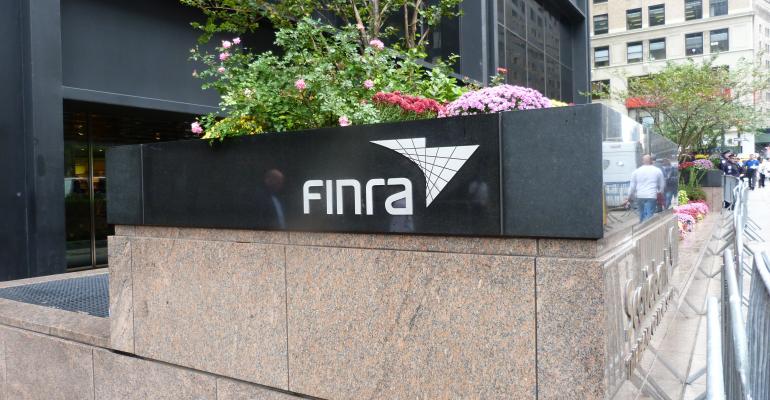The Financial Industry Regulatory Authority closed its comment period today on a regulatory notice to review its practice of letting non-attorneys represent investors in arbitration proceedings.
In response to the review, the Public Investors Arbitration Bar Association released a report Monday pointing to a pattern of problems with non-attorney representatives, many of which claim they’ve had their own run-ins with regulators and in many cases lacked the ability to adequately represent investors in disputes.
“Our new report concludes that non-attorney representatives, or NARs for short, are a real and growing menace to investors in the FINRA arbitration forum,” said Andrew Stoltmann, president of PIABA and co-author of the report. “In addition to often paltry single-digit recovery levels for their clients, NAR firms have attracted a substantial number of individuals with checkered pasts, including stockbrokers barred for life from the securities industry, and in one case, an individual who pled guilty to his role in a million-dollar jewelry swindle.”
The report calls out specific NAR firms, such as Cold Spring Advisory Group, a New York-based firm. One of its consultants, Louis Ottimo, was barred from the securities industry, while another, Frederick Amato, was charged with bookmaking in the late 1990s. The firm also had several complaints against it. PIABA found that CSAG was involved in at least 27 arbitration cases, seeking a total of $2.4 million on behalf of its clients. In 19 of those cases, clients were awarded nothing, resulting in a positive award “only 29.6 percent” of the time. That compares to an overall average of 41 to 42 percent positive awards in arbitration proceedings.
Another NAR firm in the report is Brooklyn-based Stock Market Recovery Consultants, whose co-founder, Mitchell Markowitz, pled guilty in 2004 to fraud in a nearly one-million-dollar jewelry scheme.
The report points to other troubling patterns. For example, some NARs have allegedly charged investors $25,000 in non-refundable deposits for representation. Some have taken settlement money that investors were not aware of, while others have represented investors without their consent. Some NARs have admitted to cold calling prospective clients and soliciting them to initiate FINRA arbitration proceedings; something attorneys are not allowed to do.
“Essentially this system exposes the investor, who was victimized by his or her broker, to potential further victimization, with little chance of recovering damages caused by an unscrupulous or negligent NAR,” Stoltmann said.
NARs often don’t maintain malpractice insurance, have no ethical code or constraints like attorneys do, and don’t face potential sanctions from any regulatory or licensing body, like a state bar association.
“FINRA should bar representation of investors by NARs, with a few notable, limited exceptions,” the group says.
Immediate family members, such as spouses, siblings, children or parents, should be allowed to represent family members in arbitration, PIABA argues. In addition, law students, who are affiliated with established securities arbitration clinics, should also be allowed to represent investors.
“While the client enjoys the assistance provided by well-supervised law students, those students gain valuable, practical experience in representing a client through a legal proceeding,” the report said.
FINRA has received 14 comments to its regulatory notice on the matter, nine of which were opposed to allowing NARs.





